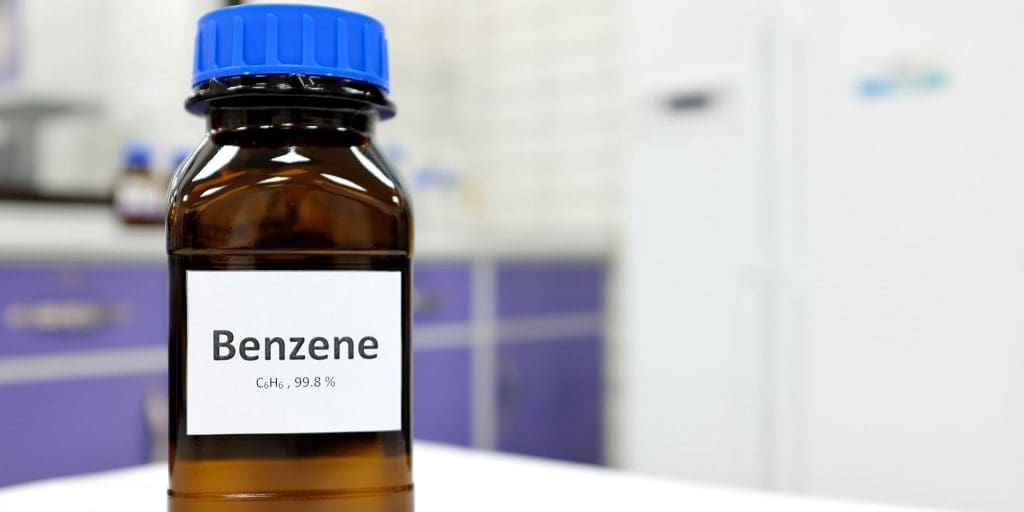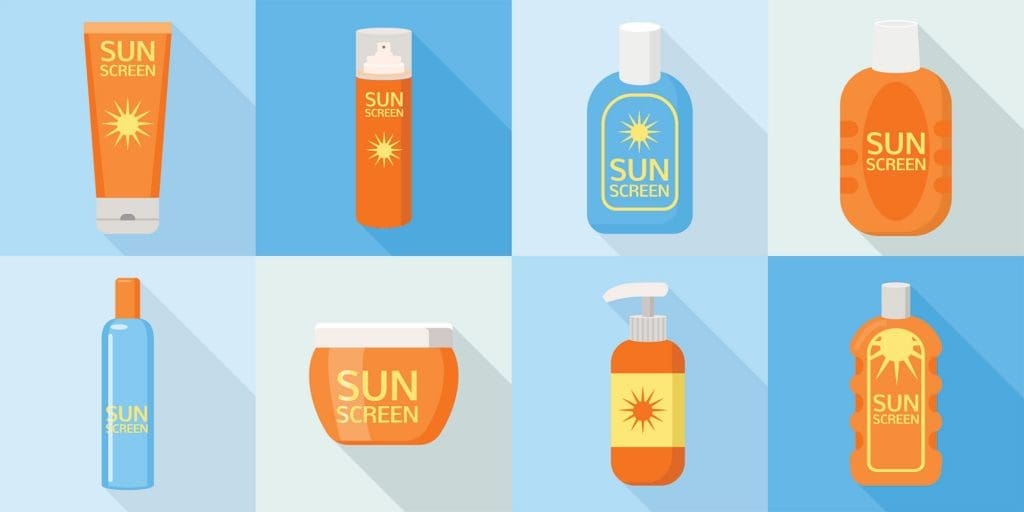Johnson and Johnson Sunscreen Recall
On Wednesday, July, 14, Johnson and Johnson (J&J) announced it would be recalling five of its aerosol sunscreen products following an independent laboratory report that found traces of the chemical benzene, a known carcinogen. The lab, Valisure, is an independent company that regularly tests consumer products in and around the pharmaceutical industry for safety. Their report, published in May of 2021, found benzene in 78 different sunscreen and after-sun products.
The recalled J&J products include:
- Neutrogena Cool Dry Sport
- Neutrogena Beach Defense
- Neutrogena Invisible Daily Defense
- Neutrogena Ultra Sheer
- Aveeno Protect+Refresh
The recall applies to all SPF ratings and sizes sold in retail stores and is limited to aerosol cans. Aside from J&J, two other major brands affected by the team’s findings were Sun Bum and CVS Health.
While the recall by J&J made headlines, many were unsure as to what benzene was, let alone why it would be harmful. Here’s what you need to know.
What is Benzene?

Benzene is classified by the Centers for Disease Control and Prevention (CDC) as a human carcinogen. This classification means that benzene could potentially cause cancer depending on the level and extent of exposure. Benzene is typically colorless or light yellow and is liquid at room temperature. It has a mildly sweet odor and is highly flammable.
Benzene can be found both naturally and by human processes. In nature, benzene is typically found in volcanoes or forest fires. It is also a natural part of crude oil, cigarette smoke, and gasoline. Human processes that can result in the formation of benzene include the creation of plastics, resins, and nylon, and synthetic fibers. Benzene is also used in the production of dyes, detergents, pesticides, drugs, and rubber.
J&J has stated that benzene is not an ingredient in any of their sunscreen products, and is investigating the cause of the contamination.
Potential Dangers of Benzene Exposure
While the levels of benzene found by Valisure were relatively low in most products, it’s still important to understand the risks involved with benzene exposure.
The outdoor air we breathe daily contains very low levels of benzene. This, depending on your location, can be a mixture of different air pollutants, but will typically be a result of motor vehicle emissions, industrial emissions, gas stations, and tobacco smoke. Indoor air can also contain benzene, but in higher concentrations than outdoor air due to poor ventilation and smaller spaces. The benzene found in indoor air can be the result of products such as detergents, paints, and glues. People that work in industries that use benzene may be exposed to higher levels of benzene than others. Since you can come in contact with benzene both by breathing and ingesting it, it can affect the body in different ways.
Short-Term Signs of Benzene Exposure
Breathing in benzene is the most common way to come into contact with the carcinogen. Some immediate symptoms of benzene exposure can include:
- Drowsiness
- Tremors
- Rapid heartbeat
- Confusion
- Headaches
- Unconsciousness
- Death (at extremely high levels)
Benzene can also be ingested. Some common signs of benzene ingestion include the following:
- Vomiting
- Dizziness
- Sleepiness
- Convulsions
- Irritation of the stomach
- Death (at extremely high doses)
What’s important to remember is that the levels of Benzene detected, while still higher than the Federal Drug Administration’s (FDA) standards, are still relatively low. J&J says that it is very unlikely that the levels of benzene detected by both Valisure and themselves are unlikely to cause any adverse health effects. “Daily exposure to benzene in these aerosol sunscreen products at the levels detected in our testing would not be expected to cause adverse health consequences,” the company said.
What to Do if You Have One of the Recalled Products

If you have one of the recalled sunscreen products, J&J recommends that you stop use immediately and discard them appropriately. J&J has also stated that should consumers need further information or a refund, they can contact JJCI Consumer Care Center’s 24/7 customer service line by calling 1-800-458-1673. If you believe you have experienced any problems relating to any of the recalled products, contact your primary healthcare provider for further guidance.
Should You Still Use Sunscreen?
While the recall of some of the most popular sunscreen products may be alarming, it’s important to remember that sunscreen is a vital part of public health. Sunscreen significantly decreases your risk of skin cancer, one of the leading causes of cancer in the United States. Daily use of SPF 15 or above has been shown to reduce your risk of squamous cell carcinoma (SCC) by nearly 40%, and lower your risk of melanoma by almost 50%.
Another important thing to remember is that J&J has stated that benzene was not added to their products. While the cause of the presence of the carcinogenic compound is still unknown, J&J is still investigating the details. One of the prominent theories behind how benzene could have been found in the company’s sunscreen is the aerosol.
Joshua Zeichner, M.D, is the director of cosmetic and clinical research in dermatology at Mount Sinai Hospital in New York City. In a recent interview, he explained how he thought benzene could have been the culprit behind the recall. “The most likely theory is that benzene probably developed from a reaction caused from the propellant used to deliver the sunscreen from the bottle itself,” he explained. “While it was not initially in the formula, it was created through a chemical reaction.”
All in all, if your preferred sunscreen was not affected by the Johnson and Johnson sunscreen recall, there’s no need to worry. That said, if you are unsure as to whether or not you’re using the best sunscreen for your skin, utilize websites like the CDC and FDA to look up ingredients you may be wary about. Still unsure? Check out our guide to buying the best sunscreen for your skin.
Have You Heard About the Johnson and Johnson Sunscreen Recall?
Tell us your experience in the comments below!
What Topics Related to Skin Care and Protection Would You Like to See Us Explore Next?
Email us at info@painresource.com with your ideas.
Are you on Facebook?

